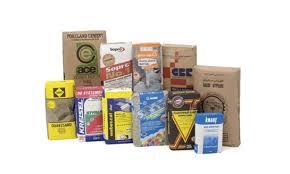Why Flexible Packaging is Revolutionizing Malaysia’s Manufacturing Sector
Corps
Flexible packaging has become one of the most transformative trends in Malaysia’s manufacturing sector. It’s no longer just about packaging products but about enhancing sustainability, improving cost-efficiency, and offering flexibility in product design and production. This shift is reshaping industries across Malaysia, from food and beverages to consumer goods and pharmaceuticals. So, why is flexible packaging gaining such momentum? Let’s take a deep dive into the reasons behind its rise.
What is Flexible Packaging?
Flexible packaging refers to any package or container made from flexible materials, such as plastic, paper, film, or foil. Unlike rigid packaging, which includes glass bottles and metal cans, flexible packaging can bend, fold, or stretch. This adaptability makes it an ideal choice for manufacturers looking for versatile, lightweight, and cost-effective packaging solutions.
The Surge in Demand for Flexible Packaging
The demand for flexible packaging in Malaysia is on the rise, and it’s easy to see why. Malaysian manufacturers are increasingly looking for ways to enhance product presentation, reduce costs, and cater to consumer preferences. Flexible packaging meets all these needs and more.
One of the key drivers behind this demand is the evolving consumer behavior in Malaysia. As consumers become more health-conscious and eco-aware, they’re looking for packaging that’s not only functional but also environmentally friendly. Flexible packaging offers the perfect blend of sustainability and innovation, with its ability to be recyclable or made from biodegradable materials, thus aligning with the growing emphasis on environmental responsibility.
Cost-Effectiveness and Efficiency
Flexible packaging is revolutionizing the manufacturing sector by offering significant cost savings. Compared to rigid alternatives like glass and metal, flexible materials are lighter, reducing transportation costs. This is a crucial factor in Malaysia, where manufacturers are increasingly looking for ways to optimize their supply chains and lower overhead costs.
Additionally, the flexibility of materials allows for more efficient use of space during production and storage. Rolls of flexible film can be easily stored and transported, taking up less space compared to bulky containers or bottles. This translates into better inventory management, fewer storage issues, and lower warehousing costs for manufacturers.
The efficiency doesn't stop with logistics; flexible packaging also speeds up the manufacturing process. The materials used in flexible packaging are often pre-formed and easy to shape, which reduces production time. With quicker turnaround times, businesses can get products to market faster, helping them stay competitive in today’s fast-paced economy.
Enhanced Product Protection and Shelf Life
The primary function of any packaging is to protect the product inside, and flexible packaging excels in this area. Flexible packaging materials like laminates and foils provide an excellent barrier to moisture, air, and light, which can degrade product quality. This makes it especially valuable in the food and beverage sector, where maintaining freshness is a top priority.
In Malaysia, where humid and tropical weather can pose challenges for manufacturers, flexible packaging ensures that products stay safe from environmental factors. By offering improved barrier properties, it extends the shelf life of products, reducing spoilage and waste. For manufacturers, this means fewer returns and more satisfied customers.
Customization and Branding Opportunities
Flexible packaging also allows for greater design flexibility, which is crucial in today’s competitive marketplace. Manufacturers can easily print vibrant graphics, logos, and product information on flexible materials, creating a visually appealing package that stands out on store shelves.
For businesses in Malaysia, particularly small and medium enterprises (SMEs), flexible packaging offers an affordable way to build brand identity. Whether it’s using striking colors, unique shapes, or functional features like resealable zippers, flexible packaging allows manufacturers to create personalized packaging that resonates with consumers. The ability to design custom packaging that reflects the brand’s identity or appeals to local tastes gives companies a significant edge in a crowded marketplace.
Sustainability and Environmental Impact
Sustainability is one of the most compelling reasons behind the rise of flexible packaging in Malaysia’s manufacturing sector. As environmental concerns intensify globally, manufacturers are under increasing pressure to adopt more sustainable practices. Flexible packaging offers several eco-friendly advantages that align with these goals.
Many flexible packaging materials are recyclable, and advancements in technology have made it easier to create packaging that reduces waste. In Malaysia, where waste management and recycling efforts are growing, flexible packaging can be a game-changer. Manufacturers can adopt packaging solutions that reduce their carbon footprint and appeal to environmentally conscious consumers.
Additionally, flexible packaging uses fewer resources during production compared to rigid packaging. With lighter materials, less energy is required during manufacturing, and less plastic is used overall. As businesses and consumers become more aware of environmental impacts, manufacturers are opting for these eco-friendly solutions to stay in line with both regulatory requirements and consumer preferences.
Flexibility in Product Applications
Flexible packaging’s adaptability makes it suitable for a wide range of products. Whether it’s food, beverages, pharmaceuticals, or personal care products, flexible packaging can be tailored to meet the specific needs of various industries. For example, in the food sector, flexible packaging can be used for snack foods, ready-to-eat meals, beverages, and more, each with unique requirements like sealing techniques, moisture barriers, and tamper-evident features.
In Malaysia, the pharmaceutical industry is also benefitting from flexible packaging’s versatility. Packaging that ensures the safety and integrity of medicines is crucial, and flexible materials can be engineered to provide the necessary protection from external factors like humidity and air.
The Future of Flexible Packaging in Malaysia
As the manufacturing sector in Malaysia continues to grow, the adoption of flexible packaging is expected to increase. With advances in material science, manufacturers now have access to more innovative and sustainable packaging solutions than ever before. The growing demand for customization, convenience, and environmental responsibility will continue to drive the shift toward flexible packaging.
The Malaysian government’s commitment to improving sustainability and promoting eco-friendly practices will likely further support the growth of flexible packaging. Manufacturers who adopt these solutions will not only improve their bottom line but also contribute to a greener, more sustainable future for the country.
Conclusion
Flexible packaging is revolutionizing Malaysia’s manufacturing sector by offering cost-effective, sustainable, and versatile solutions that cater to the ever-evolving demands of the market. From reducing costs and improving product shelf life to providing customization opportunities and meeting sustainability goals, flexible packaging is shaping the future of manufacturing in Malaysia. As businesses embrace these innovations, the sector is poised for continued growth and transformation, ultimately benefiting both manufacturers and consumers alike.








commentaires